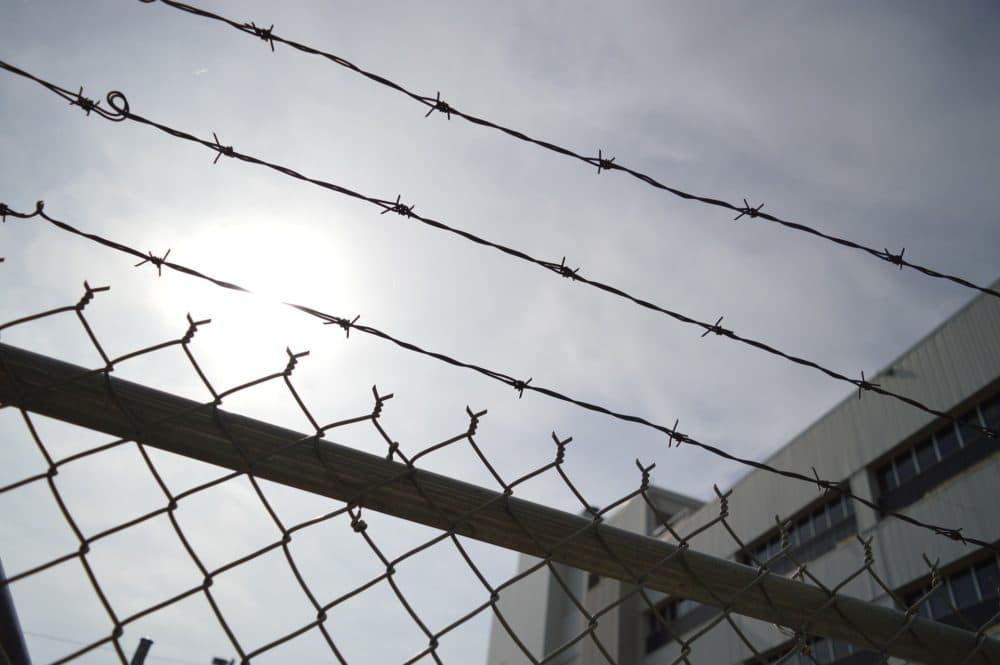Advertisement
Mass. Probation Commissioner Joins National Effort To Reform Court-Ordered Supervision
Resume
There's a new call for criminal justice reform, and it's coming from people who work in the criminal justice system.
Dozens of parole and probation leaders around the country are joining forces to try to improve the policies that govern the supervision of about 4.5 million people. The officials say too many people end up incarcerated for relatively minor technical probation and parole violations, such as missing curfew, rather than for criminal behavior.
Vincent Schiraldi is a former New York City probation commissioner who now co-directs Columbia University's Justice Lab. The lab launched the reform effort, which is called EXiT: Executives Transforming Probation and Parole. He says the main goal of the initiative is to reduce the number of people being supervised.
"You rarely get to hear any bureaucrat ever, but particularly correctional bureaucrats, say that their empires should shrink," Schiraldi says. "Probation and parole commissioners are saying stop putting so many people on probation and parole, put them on for less time, and let's make it a more helping function rather than just trail 'em, nail 'em and jail 'em."
Among those involved in the push for nationwide reform is Massachusetts Probation Commissioner Ed Dolan. He tells WBUR that about 60,000 people in the state are under court-ordered community supervision. And, Dolan says, other states can learn from what's happening here: Massachusetts has a lower rate than most other states of incarcerating people for minor parole and probation violations.
Interview Highlights
Ed Dolan: Depending on whose data you use, less than 19% of all of the incarcerations in the commonwealth are a result of parole or probation failures. ... There's a sort of a predisposition in the state to use probation as a way to move people away from incarceration and to try to get them connected in the community, so that the long-term recidivism reduction is the goal.
We've done a number of things. ... We know a lot about what works: basically good time credits for people who do follow their conditions of probation can shorten their period of probation. We're doing work around residential re-entry services — a much more managed process for folks who are leaving prison ... so that there's no gap between ... connecting with health care, both medical and behavioral health care.
We're working hard to put in place plans and services that not only are in place and support people through the kind of behavior change that we want to see while they're on supervision, but also trying to put in place the kinds of supports that support people once their period of supervision is over.
Deborah Becker: A lot of the decisions about probation are made in the courtroom. So how do you make sure that when you're talking about shorter times of probation or letting people off earlier for good behavior, how do you make sure that it's not an arbitrary system and it's uniform? Would legislative action be required, or what would have to happen there?
We've done a lot of work collectively to educate ourselves and educate the system about the best way to structure conditions. So, you know, if someone has a history of substance abuse, rather than a tightly structured prescriptive condition, what we're advocating ... is a condition that says 'get an assessment, get a treatment plan, manage to compliance with the treatment plan.'
So that gives us the flexibility to ... take much more of a recovery orientation to that work, rather than surrendering people because of a dirty drug test. Often times we'll file a violation of probation. But it's really to change the conditions, that now we think that this individual needs residential treatment — detox and residential. And that's a very different response and a very different orientation to the work than, you know, dirty urine, reincarnation. ... And the research has told us that how you respond to those failures often has long-term implications for recidivism.
Changing probation and parole to be, say, more rehabilitative ... instead of punitive ... there might be some people listening who think, 'You know what? This is giving people a pass. They're on supervision in lieu of incarceration, they agreed to abide by certain conditions to keep their freedom. They don't do it, then they don't get their freedom.' Is this a major change in that thinking? Or what do you say to the folks who believe that and who think that?
For us it's really about what works. ... If a more punitive approach — if the research told us that, than we would do that.
This segment aired on August 19, 2019.
